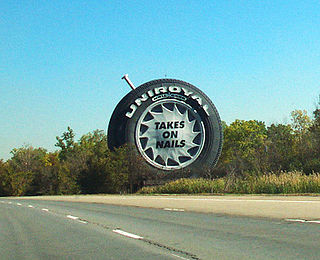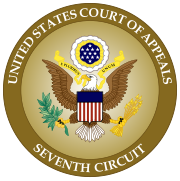
Estate of Martin Luther King, Jr., Inc. v. CBS, Inc. is a United States court case that involved a longstanding dispute about the public domain copyright status of the text of Martin Luther King Jr.'s famous speech, known by the key phrase "I Have a Dream", originally delivered at the August 1963 March on Washington for Jobs and Freedom. The court ruled that King's delivery of the speech was a "performance", rather than a "general publication", of its text, and therefore overruled a lower court judgment granting summary judgment in CBS's favor. The two sides ultimately settled the matter out of court instead of appealing to a higher court.

Apple Computer, Inc. v. Microsoft Corporation, 35 F.3d 1435, was a copyright infringement lawsuit in which Apple Computer, Inc. sought to prevent Microsoft and Hewlett-Packard from using visual graphical user interface (GUI) elements that were similar to those in Apple's Lisa and Macintosh operating systems. The court ruled that, "Apple cannot get patent-like protection for the idea of a graphical user interface, or the idea of a desktop metaphor [under copyright law]...". In the midst of the Apple v. Microsoft lawsuit, Xerox also sued Apple alleging that Mac's GUI was heavily based on Xerox's. The district court dismissed Xerox's claims without addressing whether Apple's GUI infringed Xerox's. Apple lost all claims in the Microsoft suit except for the ruling that the trash can icon and folder icons from Hewlett-Packard's NewWave windows application were infringing. The lawsuit was filed in 1988 and lasted four years; the decision was affirmed on appeal in 1994, and Apple's appeal to the U.S. Supreme Court was denied.

The company formerly known as the United States Rubber Company, now Uniroyal, is an American manufacturer of tires and other synthetic rubber-related products, as well as variety of items for military use, such as ammunition, explosives, chemical weapons and operations and maintenance activities (O&MA) at the government-owned contractor-operated facilities. It was founded in Naugatuck, Connecticut, in 1892. It was one of the original 12 stocks in the Dow Jones Industrial Average, and became Uniroyal, Inc., as part of creating a unified brand for its products and subsidiaries in 1961.
An interlocutory appeal, in the law of civil procedure in the United States, occurs when a ruling by a trial court is appealed while other aspects of the case are still proceeding. Interlocutory appeals are allowed only under specific circumstances, which are laid down by the federal and the separate state courts.
The Laffey Matrix is a fee schedule used by many United States courts for determining the reasonable hourly rates in the District of Columbia for attorneys' fee awards under federal fee-shifting statutes.
Dennis Jacobs is a senior United States circuit judge of the United States Court of Appeals for the Second Circuit.

Diarmuid Fionntain O'Scannlain is a senior United States circuit judge of the United States Court of Appeals for the Ninth Circuit. His chambers are located in Portland, Oregon.
The Civil Rights Attorney's Fees Award Act of 1976 is a law of the United States codified in 42 U.S.C. § 1988(b). It is often referred to as "Section 1988." It allows a Federal court to award reasonable attorney's fees to a prevailing party in certain civil rights cases. The Act was designed to create an enforcement mechanism for the nation's civil rights laws without creating an enforcement bureaucracy, because the prospect of being awarded attorneys' fees is thought to incentivize attorneys to bring civil rights cases on behalf of plaintiffs.
Pro se legal representation comes from Latin pro se, meaning "for oneself" or "on behalf of themselves" which, in modern law, means to argue on one's own behalf in a legal proceeding, as a defendant or plaintiff in civil cases, or a defendant in criminal cases, rather than have representation from counsel or an attorney.
Tax protesters in the United States advance a number of constitutional arguments asserting that the imposition, assessment and collection of the federal income tax violates the United States Constitution. These kinds of arguments, though related to, are distinguished from statutory and administrative arguments, which presuppose the constitutionality of the income tax, as well as from general conspiracy arguments, which are based upon the proposition that the three branches of the federal government are involved together in a deliberate, on-going campaign of deception for the purpose of defrauding individuals or entities of their wealth or profits. Although constitutional challenges to U.S. tax laws are frequently directed towards the validity and effect of the Sixteenth Amendment, assertions that the income tax violates various other provisions of the Constitution have been made as well.

The American Foundation for Equal Rights (AFER) was a nonprofit organization active in the United States from 2009 through 2015. The organization was established to support the plaintiffs in Hollingsworth v. Perry, a federal lawsuit challenging California's Proposition 8 under the Due Process and Equal Protection Clauses of the Fourteenth Amendment to the United States Constitution. AFER retained former United States Solicitor General Theodore B. Olson and David Boies to lead the legal team representing the plaintiffs challenging Proposition 8.

Google, Inc. v. American Blind and Wallpaper Factory, Inc., No. 5:03-cv-05340, was a decision of the United States District Court for the Northern District of California that challenged the legality of Google's AdWords program. The court concluded that, pending the outcome of a jury trial, Google AdWords may be in violation of trademark law because it (1) allowed arbitrary advertisers to key their ads to American Blind's trademarks and (2) may confuse search-engine users initially interested in visiting American Blind's website into visiting its competitors' websites.

Baker v. Wade 563 F.Supp 1121, rev'd 769 F.2nd 289 cert denied 478 US 1022 (1986) is a federal lawsuit challenging the legality of the sodomy law of the state of Texas. Plaintiff Donald Baker contended that the law violated his rights to privacy and equal protection. After a victory at trial, an appellate court reversed the lower court's decision and in the wake of its decision in Bowers v. Hardwick the Supreme Court of the United States refused to review it.
Wal-Mart v. Dukes, 564 U.S. 338 (2011), was a United States Supreme Court case in which the Court ruled that a group of roughly 1.5 million women could not be certified as a valid class of plaintiffs in a class-action lawsuit for employment discrimination against Walmart. Lead plaintiff Betty Dukes, a Walmart employee, and others alleged gender discrimination in pay and promotion policies and practices in Walmart stores.

Al-Haramain v. Obama, 690 F.3d 1089 was a case before the U.S. District Court for the Northern District of California filed 28 February 2006 by the al-Haramain Foundation and its two attorneys concerning the NSA warrantless surveillance controversy. The case withstood retroactive changes brought by the Congressional response to the NSA warrantless surveillance program.
Google has been involved in multiple lawsuits over issues such as privacy, advertising, intellectual property and various Google services such as Google Books and YouTube. The company's legal department expanded from one to nearly 100 lawyers in the first five years of business, and by 2014 had grown to around 400 lawyers. Google's Chief Legal Officer is Senior Vice President of Corporate Development David Drummond.

G.G. v. Gloucester County School Board is a case dealing with transgender rights. The case involves a transgender boy attending a Virginia high school, who sued the local school board after he was forced to use girls' restrooms based on his assigned gender under the school board's policy. While the Fourth Circuit ruled in favor of the student based on Obama administration policy related to Title IX protections, the election of Donald Trump changed the underlying policy, forcing a pending hearing before the Supreme Court of the United States to be vacated and the case retried at the lower courts. Due to recent case law, including the Supreme Court decision in Bostock v. Clayton County, the Fourth Circuit ruled again in favor of the student; the Supreme Court refused to hear the case, allowing the Fourth Circuit's judgment to stand.
Epic Systems Corp. v. Lewis, 584 U.S. ___ (2018), was a case decided by the Supreme Court of the United States on how two federal laws, the National Labor Relations Act (NLRA) and the Federal Arbitration Act (FAA), relate to whether employment contracts can legally bar employees from collective arbitration. The Supreme Court had consolidated three cases, Epic Systems Corp. v Lewis, Ernst & Young LLP v. Morris (16-300), and National Labor Relations Board v. Murphy Oil USA, Inc. (16-307). In a 5–4 decision issued in May 2018, the Court ruled that arbitration agreements requiring individual arbitration and prohibiting class action lawsuits are enforceable under the FAA, regardless of allowances set out within the NLRA.
Janus v. American Federation of State, County, and Municipal Employees, Council 31, No. 16-1466, 585 U.S. ___ (2018), abbreviated Janus v. AFSCME, was a landmark decision of the US Supreme Court on US labor law, concerning the power of labor unions to collect fees from non-union members. Under the Taft–Hartley Act of 1947, which applies to the private sector, union security agreements can be allowed by state law. The Supreme Court ruled that such union fees in the public sector violate the First Amendment right to free speech, overturning the 1977 decision in Abood v. Detroit Board of Education that had previously allowed such fees.
Peter v. NantKwest Inc., 589 U.S. ___ (2019), was a United States Supreme Court case from the October 2019 term.








